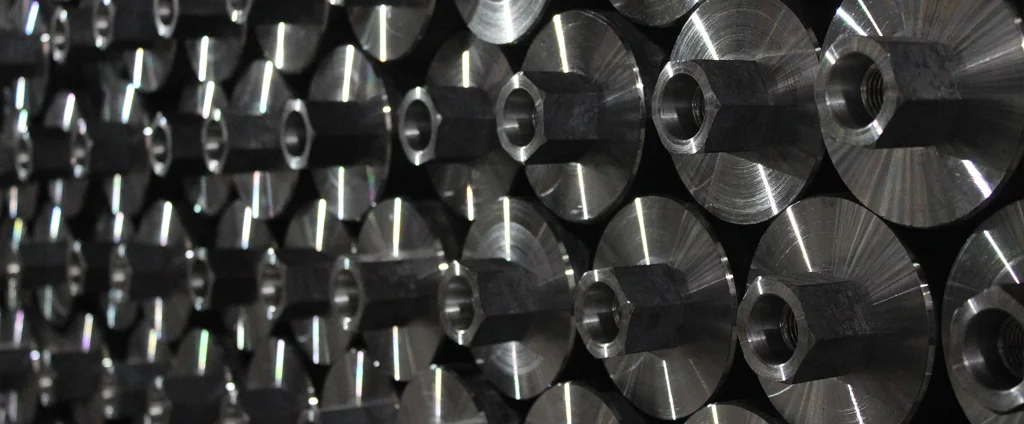SAE/AISI 1524 Carbon Steel (UNS G15240)

SAE/AISI 1524 is a low-carbon, resulfurized carbon steel known for its excellent machinability, weldability, and moderate strength. It is commonly used in applications such as fasteners, machinery components, and automotive parts, where good formability and cost-effectiveness are important design considerations.
| Chemical Composition | ||
|---|---|---|
| Element | Min | Max |
| Iron | 98.01% | 98.46% |
| Carbon | 0.19% | 0.25% |
| Manganese | 1.35% | 1.65% |
| Phosphorous | —— | 0.04% |
| Sulfur | —— | 0.05% |
The following table provides a list of SAE/AISI 1524 properties in both SI and US customary/Imperial units.
Click on the button to switch between Metric and Imperial units.
| Physical Properties | Metric |
|---|---|
| Density | 7850 kg/m3 |
| Mechanical Properties | Metric |
| Tensile Strength (Ultimate) | ≥ 510 MPa |
| Tensile Strength (Yield) | ≥ 283 MPa |
| Young’s Modulus (E) | 190 - 210 GPa |
| Bulk Modulus (K) | 140 GPa |
| Shear Modulus (G) | 80 GPa |
| Elongation at Break | ≥ 12% |
| Reduction of Area | ≥ 35% |
| Poisson’s Ratio (ν) | 0.27 - 0.30 |
| Brinell Hardness | ≥ 149 |
| Thermal Properties | Metric |
| Thermal Conductivity | 52 W/m·K |
| Specific Heat Capacity (Cp) | 470 J/kg·K |
| Coefficient of Thermal Expansion (αL) | 1.2×10-5 1/°C |
| Electrical Properties | Metric |
| Electrical Conductivity | 4.81×106 S/m |
| Electrical Resistivity | 2.08×10-7 Ω·m |
The values in this table are approximate and can vary depending on various factors such as the specific manufacturing process and heat treatment applied to the alloy.
Advantages & Disadvantages of 1524 Carbon Steel
| Advantages | Disadvantages |
|---|---|
| Good machinability | Relatively low strength |
| Cost-effective | Limited hardenability |
| Weldable and formable | Susceptible to corrosion |
Applications of 1524 Carbon Steel
SAE/AISI 1524 is widely used across industries that demand moderate strength and reliable machinability, including:
- Machinery Components: Often employed in the manufacturing of parts such as gears, shafts, bolts, studs, and other structural elements.
- Automotive Parts: Suitable for automotive components including crankshafts, axles, connecting rods, and suspension parts due to its strength and formability.
- Fasteners: Utilized for producing bolts, screws, and nuts commonly used in construction, machinery, and automotive applications.
- General Purpose Steel: Versatile for use in construction, agriculture, and manufacturing where high strength is not critical.
- Welded Structures: Suitable for welded assemblies, frames, and structural parts requiring ease of welding and moderate strength.
- Tools and Tooling Components: Used for producing jigs, fixtures, and cutting tools where machinability and moderate strength are essential.
